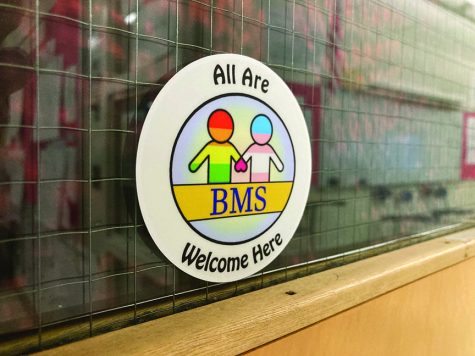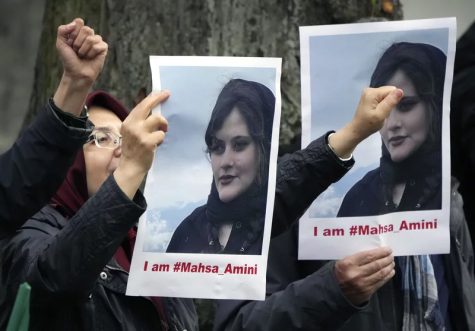U.S. Gov’s Grip on Your Phone
For many years now, Apple has been the most popular technology company on the planet. If you walked through any hallway at Bedford Middle School in the morning, you would likely see a majority of students using some sort of Apple product. With all of the features that these devices bring also comes the fear that the data on the devices can be accessed by others.
What was this uproar all about? On Dec. 2, 2015, the United States was focused on San Bernardino, Calif. Fourteen people were killed at what was at first thought to be workplace conflict at a Christmas party, but in fact turned out to be the actions of terrorists who had vowed support for ISIL. Before the shooting, the killer, Syed Farook, worked at the local government offices as a food inspector. The FBI wanted to access that phone to see if it had any suspicious evidence and to determine who Farook was in contact with.
In public statements, Apple said it was refusing to assist the FBI in helping them unlock the phone in fear that they could use the same code to unlock the over 700 million other iPhones. Ultimately, the FBI found a third-party to help unlock the phone but it highlighted the debate of privacy versus national security.
Will people be able to hack our phones more easily? Will our phones be safe? More importantly, will our data be safe?
Will the government do this behind our backs?
Ursus recently conducted a Google poll through Schoology, asking which side the students take on this issue of Apple or the FBI. The result was evenly split: 49.6 percent sided with Apple, and 50.4 percent thought the FBI should have access to peoples phones. BMS is equally divided over what the FBI should do with the data if they were to have accsess to it.
This is a far cry from the results of a recent Reuters/Ipsos nationwide poll that found roughly twice the number of Americans thought Apple was right compared with the FBI.
As Sven Hermann, an eighth grader, said, “The government has the right to find information, but they have to have a certain level of transparency.” Mr. Rob Rogers, resident BMS tech expert said, “I don’t think anyone was surprised the FBI was able to get into the device. In any system there is a vulnerability, that is not unusual in any way.” Apple’s concern is that if a back door to the iPhone is created, thousands of hackers would be able to steal credit card data, passwords, and other private data routinely entered into an iPhone. Apple has built its brand on the integrity and security of its devices, and the company doesn’t want that reputation to be damaged, according to TIME magazine.
Technology companies also fear that this decision could also affect activity outside of the United States, where most of their phones are sold. Any country could force Apple to unlock phones for the purpose of spying on its own citizens. But Apple hasn’t always withheld information in this way. According to an NPR report, Apple gave the Chinese government the contents of over 1,000 phones. Why is Apple so willing to help another government over the US government?
The government believes that, since it has proper legal authorization through court orders, it should have access to the phone. The scales of the law seem to tip in favor of the FBI, but Apple refused to comply, using the defense of privacy. Although the San Bernadino case has drawn to a close through third-party access, the issue is bound to come up again.
Tim Cook, successor to Steve Jobs as CEO of Apple, stated, “This is about much more than a single phone or a single investigation.” But this code that unlocks the iphone could solve countless crimes by accessing things like the criminal’s phone history or texts. James Comey, current FBI Director and previous Westport resident, said during the height of the controversy, “Essentially, we’re asking Apple to take the vicious guard dog away, let us try to pick the lock.” Apple was persistent with the simple answer of “no” and the FBI was forced to take a different approach. After a hacker was hired, Apple started a desperate struggle to patch the bug that allowed the FBI access, but it was a failure. Now, Apple is trying to create a “FBI-proof” operating system, but if the bug is not found, the FBI will keep opening more phones.
This is a milestone in the history of technology and the government. Even though the issue may seem to decide our fates, we don’t need to worry–as President Obama said, “You can’t take an absolutist view. One cannot say either we have strong, perfect encryption, or it’s a Big Brother Orwellian world.”–because even the government has to follow the law. The Government can only do a phone investigation with a warrant, they cannot open whatever phone they please.













